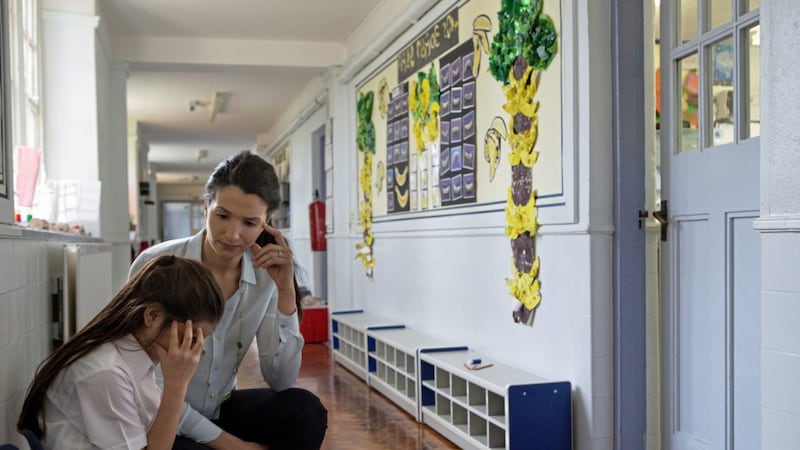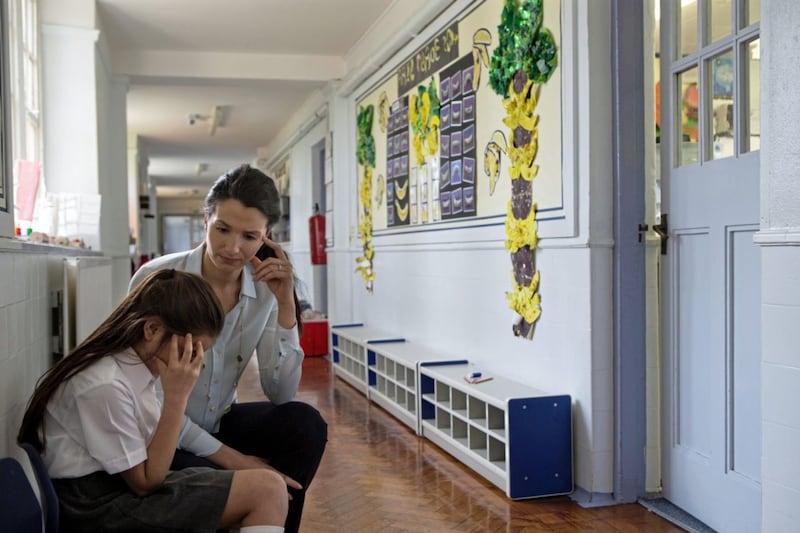I DID a story last week with a teenager grieving the loss of his father, who took his own life seven years ago.
Oisin Quigley was just 12 when his father Colm died. He was 39 and the father of five children. Now 19, the young Derry student used the anniversary of his dad’s death to call on our schools to introduce mental-health lessons for young people.
He says educating our children about the importance of good mental health, the symptoms of mental illness and tools to deal with it will not only normalise the issue but will make sure they can recognise if they need to reach out.
He says that in doing this, it might prevent what happened to his dad happening to another person. He says there’s no more shame in depression than there is in the common cold.
“It’s been seven years to the day since he passed,” he told me last week. “Feelings of regret, frustration, anger and sadness tend to creep up in and around these significant, yet arbitrary, dates.
“I knew him well enough to know he was a kind man, a gentle, caring, motivated and hard-working man. However, I was only 12 when he died. I never knew the man as well as I’d wish I’d gotten the opportunity to. As well as my older brother and sister, my mother or my aunties, uncles and grandparents did.
“I remember my dad as an ideal father and his battle with the illness near the end of his life doesn’t change that memory one bit. He was healthy, funny and strong. He was a provider.
“Depression is the illness, suicide is only one of many, many symptoms. There are cures out there. We need to work as a community to spread awareness of these cures, to break the stigma that ‘mental’ illnesses are surrounded by, and to show people that there’s no more shame in depression than there is in the common cold.”
Oisin is, of course, right. We have a mental health crisis here in Northern Ireland. We continue to have the highest rate of suicide in the UK, per head of population. Almost 300 men and women – fathers and mothers, brothers, sisters, husbands, wives, sons and daughters – lost their lives to suicide here last year.
In school we teach our children how to look after their bodies. A huge emphasis is put on good nutrition and exercise. We need to teach them how to look after their minds just as well.
On average one in 10 children between the ages of five and 16 live with a diagnosed mental health issue – that’s three pupils in every class in school.
Normalising the problem, making the subject commonplace, removing the stigma and being able to talk openly about it as you would do a common cold is crucial, particularly since our overstretched health service is struggling to cope and waiting lists for youth mental health services are long.
Our kids need to be able to talk about their feelings. Men in particular were once boys who were told to ‘man up’ and ‘stop crying’, hide their emotions and deal with things ‘like a man’.
Our kids need to know that things will go wrong in life, and that sometimes they will go terribly wrong. That sometimes challenges will look totally impossible to overcome. And they need to know that is OK.
Resilience is one of the most crucial, valuable skills our children can learn, as well as relaxation. Through education, we need to help mould our young people so that they can become strong and resilient adults in this increasingly brutal world.
I wholeheartedly back Oisin’s call that schools should ‘teach’ resilience and mental wellbeing. We can all learn lessons from the heartache that has gone before. It’s time that the Education Authority here in Northern Ireland put mental well being on the curriculum.



